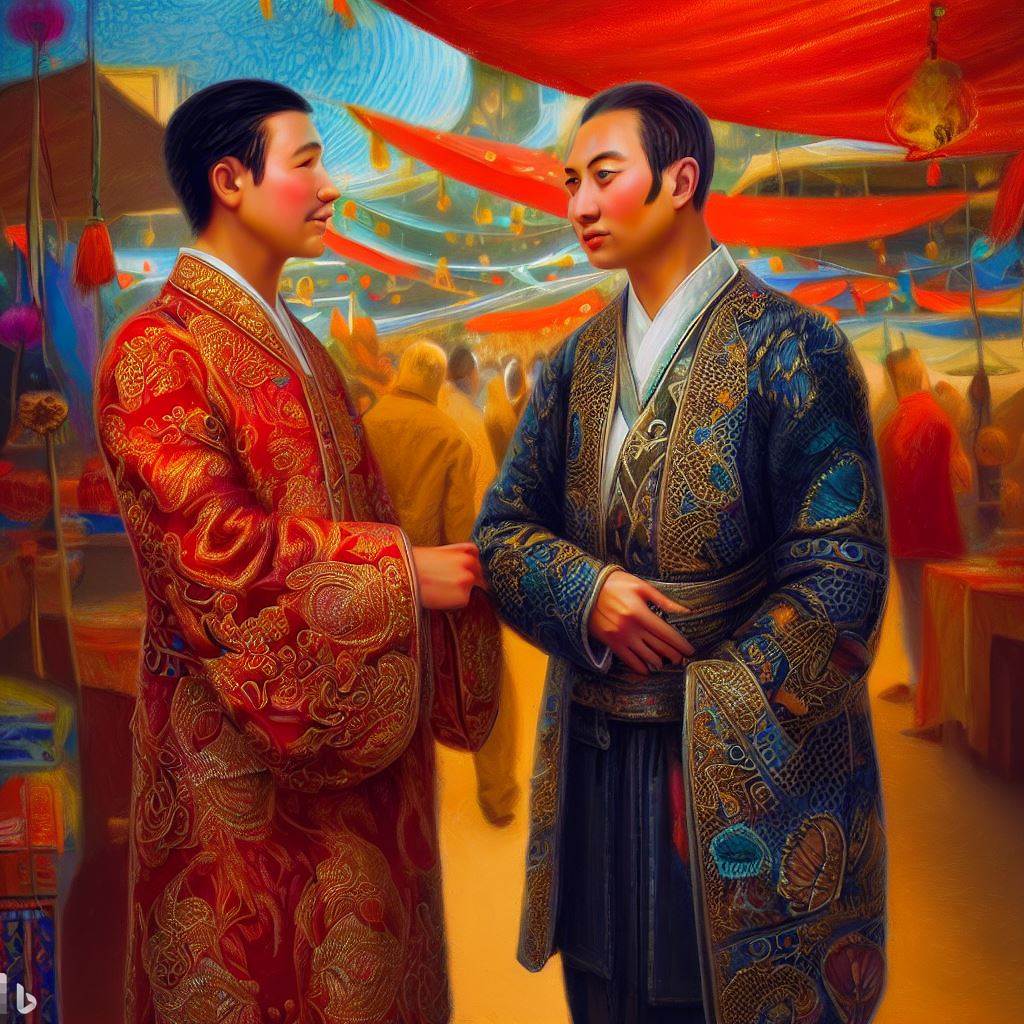From the ancient Silk Road to modern diplomatic relations, the relationship between China and Türkiye has spanned over 3,600 years. Although many people believe that modern exchanges between the two countries began in 1928, the reality is that the period of interaction extends forward for at least half a century. In this blog post, we will explore the historical roots of this relationship and how it has evolved over time.
The relationship between China and Türkiye is a fascinating one, dating back over 3,600 years. This relationship has spanned from ancient commerce along the Silk Road to modern-day diplomatic relations. The previous draft of this blog post explored the historical roots of this relationship and how it has evolved over time.
One interesting aspect of the relationship between China and Türkiye is the missed opportunities that occurred in the past. For example, during the late Qing Dynasty, both countries had the chance to form allies against Russia. However, due to the incompetence of officials, this opportunity was missed. It’s interesting to consider how history might have been different if this alliance had been formed.
Despite these missed opportunities, Türkiye has never given up on establishing a friendly relationship with China. During the Yihetuan Movement, Sultan Abdul Hamid II attempted to send envoys to China to persuade Muslim communities not to expand the riots. However, this was prevented by Russia, which feared the potential strength of an alliance between the two countries.
Ancient Commerce

Let’s start with the ancient times. The pre-Qin ancient book “Yi Zhou Shu” records that Tang, the first monarch of the Shang Dynasty, received mules from vassal states. Mule is “katır” in Turkish, and it is still used in Turkish today. This suggests that commerce between China and Türkiye at that time might have been transported by mules. This kind of historical and cultural relationship has many records in Chinese history books, and it is fascinating to see how it has endured over the centuries.
Early Diplomacy
Moving forward in time, we come to the late Qing Dynasty, when China and Türkiye had the opportunity to form allies against Russia. However, due to the incompetence of officials, this opportunity was missed. If the officials of the Qing government had shown great foresight, China and Türkiye could have gained independent status decades earlier. This was a missed opportunity for both countries, and it is interesting to ponder what might have been if history had taken a different path.

Continued Efforts
Despite missed opportunities in the past, Türkiye never gave up its willingness to establish friendly relations with China. This was evident during the Yihetuan Movement, when Sultan Abdul Hamid II attempted to send envoys to China to persuade Muslim communities not to expand the riots. However, this was prevented by Russia, which feared that a stronger alliance between China and Türkiye would be detrimental to its aggression against both countries.
Modern Diplomacy
Fast forward to the present, and we see that diplomatic relations have now been established between the Republic of China and the Republic of Türkiye. This is a positive development, and it is encouraging to see how both countries are continuing to foster a positive relationship.
Conclusion
In conclusion, the relationship between China and Türkiye has a long and fascinating history that spans over 3,600 years. From ancient commerce to modern diplomacy, the two countries have continued to interact with each other in various ways. While missed opportunities in the past are regrettable, it is important to focus on the present and future, and to continue building a strong relationship between China and Türkiye.
Yet, Turkey’s commitment to friendship remains undiminished. During the 19th century Boxer Rebellion, Abdülhamid II sought to aid Chinese Muslims and mitigate tensions, showing Turkey’s goodwill.
Today, Turkey and China have much to gain by building a modern partnership based on mutual trust and shared interests. History should inspire, not impede, our cooperation on trade, innovation, and security issues. The potential is vast. The “Belt and Road Initiative” and Turkey’s strategic location can combine to better connect Asia and Europe.
Business leaders should explore joint ventures. Policy makers should remove barriers to bilateral trade and investment.
